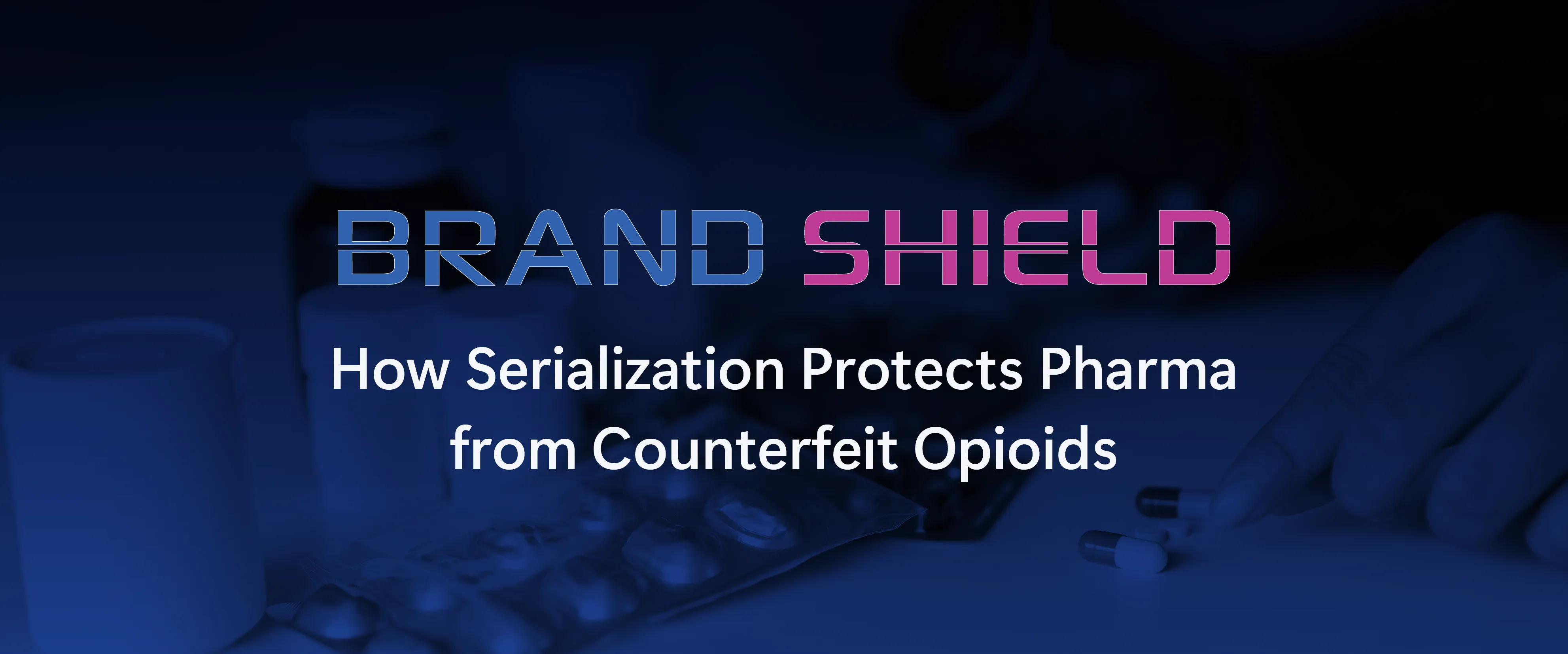Dans le paysage pharmaceutique actuel aux enjeux élevés, l'intégrité de la marque est bien plus qu'une question de marketing. C'est une question de sécurité des patients et de survie de l'entreprise. Face à l'afflux croissant d'opioïdes contrefaits et ultra-puissants qui s'infiltrent sur les marchés mondiaux, les fabricants de produits pharmaceutiques sont confrontés à un défi urgent : ils doivent protéger leurs produits, leurs patients et la réputation de leur marque contre les activités illicites.
Les opioïdes contrefaits : une menace croissante
Les fabricants d'opioïdes illicites sont de plus en plus audacieux et de plus en plus avancés. Les contrefaçons ne sont plus de simples imitations ; elles ressemblent souvent à des produits authentiques, avec de faux emballages, des numéros de lot et des scellés inviolables. Dans certains cas, ils sont associés à des niveaux dangereux d'analogues du fentanyl, ce qui met en danger la sécurité des patients et entraîne de graves conséquences, pouvant aller jusqu'à des surdoses mortelles.
Selon l'évaluation nationale de la menace médicamenteuse de 2024 de la DEA, 7 pilules contrefaites sur 10 saisies aux États-Unis contiennent une dose létale de fentanyl. Ces contrefaçons sont sophistiquées, presque impossibles à distinguer des pilules authentiques. Ils incluent souvent de faux numéros de lot, des scellés inviolables et des emballages.
À l'échelle mondiale, la situation est tout aussi dramatique. L'Organisation mondiale de la santé (OMS) estime qu'un produit médical sur 10 dans les pays à revenu faible ou intermédiaire est de qualité inférieure ou falsifié. La contrefaçon n'est pas un problème localisé. Il s'agit d'une crise transnationale qui mine les systèmes de santé et les marques du monde entier.
Les équipes de protection des marques sont de plus en plus chargées d'identifier et de stopper ces menaces avant qu'elles n'atteignent les consommateurs. Mais les méthodes traditionnelles, telles que la mise à jour de la conception des emballages ou les inspections ponctuelles, ne suffisent plus. La réponse se trouve dans quelque chose de bien plus robuste : sérialisation.
La sérialisation : l'armure numérique de la marque
La sérialisation attribue un identifiant unique à chaque unité vendable d'un produit. Il donne essentiellement à chaque flacon, plaquette thermoformée ou flacon sa propre empreinte digitale. Ce code est suivi tout au long de la chaîne d'approvisionnement, créant ainsi une chaîne de traçabilité ininterrompue pratiquement impossible à reproduire pour les faussaires.
Pour les équipes de protection des marques, la sérialisation constitue un outil puissant permettant de vérifier l'authenticité à tout moment, de l'usine aux mains du patient. Si le code d'un produit est dupliqué, non valide ou hors séquence, c'est un signe clair que quelque chose ne va pas.
Cela empêche non seulement la réplication illicite, mais également :
- Renforce la confiance des consommateurs en garantissant l'authenticité de chaque produit vendu.
- Limite l'exposition légale en démontrant une conformité proactive aux réglementations anti-contrefaçon.
- Protège les revenus en réduisant l'infiltration de produits contrefaits qui cannibalisent les ventes légitimes.
LSPedia : renforcer la sérialisation et la protection de la marque à l'échelle mondiale
La suite OneScan de LSpedia permet une sérialisation fluide au niveau de l'unité, conformément aux exigences réglementaires de différents pays. Mais la sérialisation n'est que la première étape. L'outil OneScan Investigator™ est notre plateforme de gestion des exceptions leader dans sa catégorie. Il agit comme votre tour de guet mondiale, surveillant des problèmes tels que :
- Numéros de série dupliqués ou manquants
- Expéditions inattendues ou reventes non autorisées
- Codes de produits illisibles, expirés ou non enregistrés
L'outil OneScan Investigator™ fournit des flux de résolution guidés qui aident votre équipe à agir rapidement, à limiter l'exposition et à maintenir la conformité réglementaire au-delà des frontières.
À une époque où la frontière entre les produits pharmaceutiques légitimes et illicites est dangereusement mince, la sérialisation n'est pas simplement un mécanisme de défense. C'est la base de la confiance des marques à l'échelle mondiale. Il indique aux régulateurs, aux prestataires et aux patients que votre entreprise s'engage en faveur de la transparence, de la sécurité et de l'authenticité, quel que soit le marché.
Les fabricants de produits pharmaceutiques qui s'associent à LSpedia disposent des outils dont ils ont besoin pour protéger leurs chaînes d'approvisionnement aux États-Unis et dans le monde entier.
Protégez votre marque avec LSpedia dès aujourd'hui



%201.webp)




%201.webp)




.avif)




.webp)





















